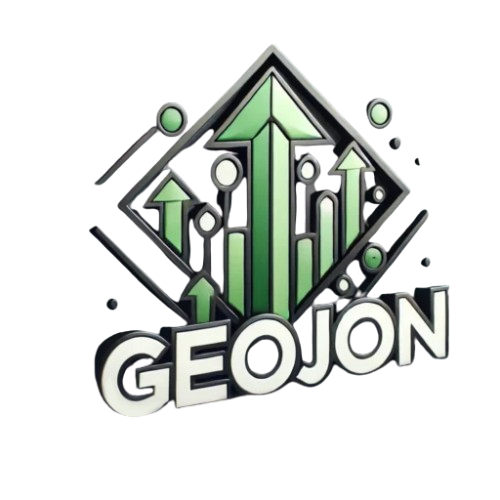
Key Takeaways
- Quality Trumps Quantity: SearchGPT rewards thoughtful, deeply relevant content that addresses user intent over superficial keyword stuffing.
- Authority Builds Trust: Establishing domain authority through citations, backlinks, and consistent high-value content enhances credibility with SearchGPT.
- User-Centric Design Matters: Fast loading times, intuitive navigation, and structured data create the engagement that drives rankings.
- Adaptability to AI Trends: Staying ahead of conversational search, multimedia integration, and real-time data trends is crucial for success.
- Consistency is Key: Regular updates signal relevance, ensuring your information remains a trusted resource.
Estimated Reading Time: 15 minutes
How to Rank in SearchGPT: Mastering Visibility in AI Search
SearchGPT is redefining search by prioritizing user intent and conversational responses. Unlike traditional search engines, it synthesizes answers from credible sources rather than presenting a list of links. Ranking in SearchGPT requires not only robust SEO strategies but also a genuine commitment to creating value-driven content. This generative engine optimization (GEO) guide explores how to position your site as a trusted authority in this new AI-driven ecosystem.
The Evolution of Search: What Sets SearchGPT Apart
SearchGPT, powered by OpenAI, is designed to provide direct, personalized answers. Its natural language understanding (NLU) makes it distinct, as it focuses on conversational queries and delivers content that directly aligns with user intent.
This paradigm shift means businesses must prioritize clarity, depth, and engagement over outdated SEO practices like keyword stuffing. SearchGPT demands content that is easy to parse, richly informative, and deeply connected to the needs of its audience.
Content Quality: The Core of SearchGPT Rankings
Why Quality Matters
SearchGPT evaluates content based on its ability to address user intent comprehensively. It favors articles, guides, and multimedia resources that provide depth and actionable insights.
What Defines High-Quality Content?
- Relevance: Content must address the query’s core intent. For example, “How do solar panels work?” should provide a detailed explanation, diagrams, and case studies where applicable.
- Clarity: Use straightforward language, logical flow, and concise sections to ensure AI can easily parse and summarize your content.
- Depth: Comprehensive content that includes statistics, expert insights, and contextual examples ranks higher.
Chart: Attributes of High-Quality Content
| Attribute | Importance Level (1-5) |
|---|---|
| Relevance | 5 |
| Clarity | 5 |
| Depth | 4 |
| Visual Support | 4 |
| Authority | 5 |
Authority: Building Trust in SearchGPT
Why Authority is Critical
SearchGPT places high value on content that comes from trustworthy, authoritative sources. This means that websites with a strong reputation and consistent expertise will perform better.
Building Authority
- Earning High-Quality Backlinks: Links from reputable sites signal credibility.
- Citations and References: Clearly attributed data increases trust.
- Frequent Updates: Keeping your content current improves your reliability.
Chart: Signals of Authority
| Signal | Impact on Ranking |
|---|---|
| Backlinks | High |
| Citations | High |
| Domain Authority | Moderate |
| Brand Mentions | Moderate |
User Engagement and Experience: Hidden Drivers of Success
SearchGPT tracks user engagement metrics like time on page and bounce rates to gauge the relevance and usefulness of your content. A seamless user experience is crucial to keep visitors engaged.
How to Optimize User Experience
- Mobile Optimization: Ensure responsive designs for mobile users.
- Fast Loading Times: Slow sites lead to higher bounce rates.
- Intuitive Navigation: Enable users to explore related content easily.
Chart: Factors Enhancing User Engagement
| Factor | Contribution to Rankings |
|---|---|
| Mobile Optimization | High |
| Page Speed | High |
| Navigation | Moderate |
Emerging Trends in SearchGPT Optimization

Conversational Search Queries
SearchGPT thrives on conversational queries like “What’s the best way to learn Spanish?” Optimizing content for a natural tone increases your chances of ranking.
Multimedia Integration
AI-driven search rewards pages with engaging multimedia like videos, podcasts, and infographics. For example, a video tutorial on “how to repair a flat tire” can significantly enhance engagement.
Chart: SearchGPT Trends Impact
| Trend | Importance Level (1-5) |
|---|---|
| Conversational Queries | 5 |
| Multimedia Integration | 4 |
| Real-Time Data | 4 |
| IndexNow Protocol | 3 |
Technical Optimizations for SearchGPT
Structured Data and Schema Markup
Adding structured data allows SearchGPT to better understand and categorize your content. Common schemas include FAQs, How-Tos, and Product Markup.
Site Speed and Core Web Vitals
SearchGPT considers user experience metrics like loading speed and interactivity. Optimizing Core Web Vitals is critical for maintaining competitiveness.
Chart: Technical SEO Priorities
| Technical Element | Impact on Rankings |
|---|---|
| Structured Data | High |
| Site Speed | High |
| Core Web Vitals | High |
| Mobile Optimization | Moderate |
Five Additional Ranking Factors for SearchGPT

- Voice Search Optimization
With more users relying on smart assistants, crafting content to answer spoken queries can significantly improve visibility. Ensure concise answers are prominently placed. - Local SEO for Geo-Specific Queries
Local businesses should optimize for location-based queries, emphasizing phrases like “near me” or specific city names in titles and meta descriptions. - Content Longevity and Evergreen Appeal
Articles with enduring relevance—such as “How to Start a Vegetable Garden”—are more likely to sustain high rankings over time. - Interactive Features
Polls, quizzes, or calculators provide an interactive layer to content, boosting user engagement and session duration. - Semantic Keyword Usage
Beyond traditional keywords, employing semantically related terms and phrases helps AI understand the broader context of your content.
FAQs: Common Questions About SearchGPT Rankings
1. How does SearchGPT evaluate content relevance?
SearchGPT uses natural language understanding to match content with the user’s query intent, focusing on depth and clarity rather than keyword density.
2. Does multimedia improve my SearchGPT rankings?
Yes, integrating multimedia like videos and infographics enhances user engagement, which is a key ranking factor.
3. Is voice search optimization necessary for SearchGPT?
Absolutely. Voice search aligns closely with conversational queries, which SearchGPT prioritizes.
4. How often should I update my content for SearchGPT?
Regular updates—ranging from monthly for news to annually for evergreen topics—signal relevance and authority.
5. Can IndexNow improve my ranking in SearchGPT?
While it doesn’t directly influence rankings, IndexNow ensures faster indexing of your content updates, keeping you competitive.
Conclusion: Winning in SearchGPT
Success in SearchGPT rankings isn’t about gaming the system—it’s about creating a foundation of trust, value, and relevance. By focusing on user-centric content, optimizing technical elements, and staying ahead of trends like conversational queries and multimedia, you can establish yourself as a leader in this AI-driven search landscape.
The future of search belongs to those who prioritize quality and authenticity, and SearchGPT rewards those who rise to the challenge. Looking for additional guidance and strategies that will propel your brand in Generative Search? Contact GEOJon today!
Search
Recent Posts
ChatGPT Search Goes Account-Free: The Future of
- February 7, 2025
- 13 min read
Strategies to Dominate Consumer Searches with AI
- January 13, 2025
- 15 min read
Boost Visibility: Integrate GEO with SEO Strategies
- January 6, 2025
- 6 min read








